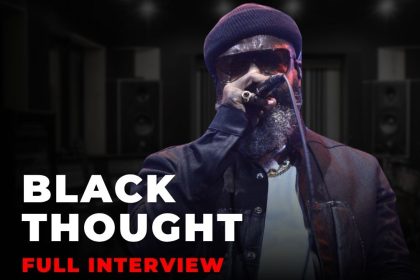Sister leads campaign for Fetty Wap’s freedom during Second Chance Month
Seeking justice reform, the family of incarcerated rapper Fetty Wap has launched a public campaign advocating for his early release from federal prison, where he is currently serving a six-year sentence for drug trafficking charges.
The “Trap Queen” artist, whose legal name is Willie Junior Maxwell II, has been incarcerated since October 2021 after pleading guilty to conspiracy to distribute controlled substances. His scheduled release date isn’t until 2027, but his sister Divinity Maxwell-Butts believes he deserves clemency after serving approximately half his sentence.
The case for compassion
Maxwell-Butts initiated the campaign on April 4, strategically timing her appeal during April’s Second Chance Month—a nationally recognized period dedicated to raising awareness about reintegration opportunities for formerly incarcerated individuals. Her advocacy emphasizes rehabilitation over extended punishment, particularly for nonviolent offenders like her brother.
The family’s plea centers on concepts of redemption, mercy, and proportional justice. Maxwell-Butts argues that her brother has demonstrated accountability by accepting responsibility for his actions and has already served a significant portion of his sentence. She believes he should be allowed to return to his family and children sooner rather than continuing incarceration for what she characterizes as a nonviolent offense.
Community impact concerns drive much of the campaign’s reasoning. Supporters note that prolonged separation from family can have devastating effects on children and community stability, particularly in communities already facing socioeconomic challenges.
Legal context and background
Fetty Wap‘s legal troubles began dramatically when FBI agents arrested him at the Rolling Loud music festival in New York in late 2021. Prosecutors charged him as part of a wider drug trafficking investigation that allegedly distributed substantial quantities of cocaine, heroin, and fentanyl throughout Long Island and New Jersey.
The rapper ultimately accepted legal responsibility for his role in the operation. In May 2023, a federal judge sentenced him to six years in federal prison—a sentence that, while substantial, was less than the potential maximum penalty such charges could carry.
Criminal justice reform advocates point to cases like Maxwell’s as examples of the system’s focus on punishment over rehabilitation. They argue that extended sentences for drug offenses—particularly for first-time offenders—do little to address underlying issues of addiction, economic opportunity, and community healing.
Clarifying misconceptions
The campaign has generated significant social media attention, with some supporters mistakenly believing the rapper had already secured early release. Maxwell addressed these rumors directly from prison, expressing appreciation for the support while clarifying that he remains incarcerated.
This confusion highlights the complicated nature of clemency campaigns, which often face challenges in maintaining accurate messaging amid the rapid spread of information across social platforms.
Second Chance Month significance
April’s designation as Second Chance Month provides meaningful context for the family’s timing. The observance, recognized by various governmental and non-governmental organizations, aims to reduce stigma surrounding criminal records and promote policies that create pathways to successful reentry into society.
Barrier reduction initiatives frequently associated with Second Chance Month include employment opportunities for formerly incarcerated individuals, housing access programs, and educational pathways that reduce recidivism rates.
Advocates argue that second chances benefit not just individuals but entire communities through increased stability, reduced criminal justice system costs, and strengthened family units.
The broader clemency conversation
The appeal for Fetty Wap’s early release emerges amid ongoing national conversations about clemency, particularly for drug offenses that carry disproportionately long sentences relative to their societal impact.
Recent years have seen increased bipartisan support for clemency initiatives that recognize the limited public safety benefit of lengthy sentences for nonviolent drug offenders. Criminal justice reform advocates point to data showing that extended incarceration periods often create more societal problems than they solve.
Policy experts note that each month of additional incarceration beyond what’s necessary for public safety and rehabilitation represents significant taxpayer expense while potentially damaging family structures and economic opportunity.
Cultural impact and future prospects
As a recording artist who achieved mainstream success with hits like “Trap Queen,” Fetty Wap maintains cultural relevance despite his incarceration. His music career, which included a Grammy nomination and multiple chart-topping singles, demonstrated his creative talent before legal troubles interrupted his trajectory.
Supporters suggest his potential for positive community impact through artistic expression and economic opportunity makes him an ideal candidate for clemency consideration. They argue his visibility could transform him into an advocate for others facing similar circumstances if given the opportunity for early release.
Whether federal authorities will consider the clemency request remains uncertain. The process typically requires extensive review at multiple levels of the justice system, with final decisions resting with executive branch officials. The family continues their advocacy while maintaining regular communication with the rapper during his incarceration.
For now, the campaign continues gathering support while highlighting broader questions about proportional justice, second chances, and the purpose of incarceration in contemporary American society.

















